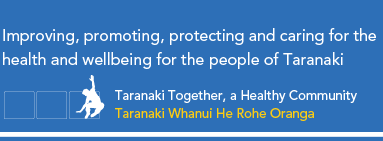Stroke patient receives lifesaving treatment in record breaking time
29 October
Last month, Stratford woman, Gay Burnnand arrived in an ambulance at Taranaki Base Hospital’s Emergency Department (ED) following a stroke and received life-saving treatment in record breaking time.
Taranaki DHB Stroke Physician, Dr Bhavesh Lallu said, "From the time Gay’s daughter called 111 from their Stratford home, to the time she was on an Auckland Hospital operating table receiving clot removal treatment, just three hours and 29 minutes had passed.
"In that time Gay had been transferred via ambulance to the ED in New Plymouth (more than 40 kilometres away), once in ED she was immediately assessed by ED staff, had a CT scan to decipher what kind of stroke she was having, received medication to help dissolve blood clots, and was then transferred by helicopter to Auckland Hospital. She spent just 31 minutes in Taranaki Base Hospital.
"To put it in perspective, the average time around the world for this hospital part of this process is 90 minutes, explained Dr Lallu. "That is why early recognition and receiving treatment as soon as possible are the most important factors in a patient’s survival/recovery.
"If you or someone else may be suffering a stroke, call 111 immediately," Dr Lallu added.
With today (Tuesday 29 October) being World Stroke Day, Taranaki DHB is sharing Gay’s story as a reminder to people that every minute counts following a stroke and for each minute that passes without blood flow to the brain, two million brain cells are lost.
"Being a smaller regional hospital means we have very close working relationships with St John Ambulance and the Taranaki Rescue Helicopter crews, Emergency Department, Radiology and general medical colleagues which really helps streamline processes for management of stroke patients, resulting in better health outcomes for people like Gay," Dr Lallu said.
Knowing how to recognise a stroke is vital. A stroke can be identified by thinking ‘FAST’:
- Face: Is it drooping on one side?
- Arm: Is one arm weak?
- Speech: Is it mixed-up, slurred or lost?
- Take Action: Call 111 immediately.
Gay’s husband Gary said the morning of her stroke, Gay had gotten out of bed and collapsed on the floor.
"She has fainted in the past so I thought that’s what may have happened, but she didn’t come around as she usually would and her arm was hanging loose, so I knew something wasn’t right."
Mini-strokes can happen prior to a stroke. These signs of stroke disappear within minutes or hours, but should be seen as a clear warning that a more severe stroke might follow.
Early medical attention and treatment can prevent this. There is nothing trivial about a mini-stroke and anyone experiencing one should call 111 immediately.
The good news is almost all strokes can be prevented. Early detection and effective control of stroke risk factors can greatly reduce the possibility of stroke. Risk factors include high blood pressure, an irregular heart beat (atrial fibrillation), smoking and an inactive lifestyle.
After spending 12 days in hospital, Gay is now at home and is recovering well with the support of her family and follow up care from hospital staff.
For more information about reducing your risk of stroke, or If you have any concerns, visit www.stroke.org.nz/reducing-stroke-risk or speak to your GP.
Last updated: Tuesday, 29 October, 2019


